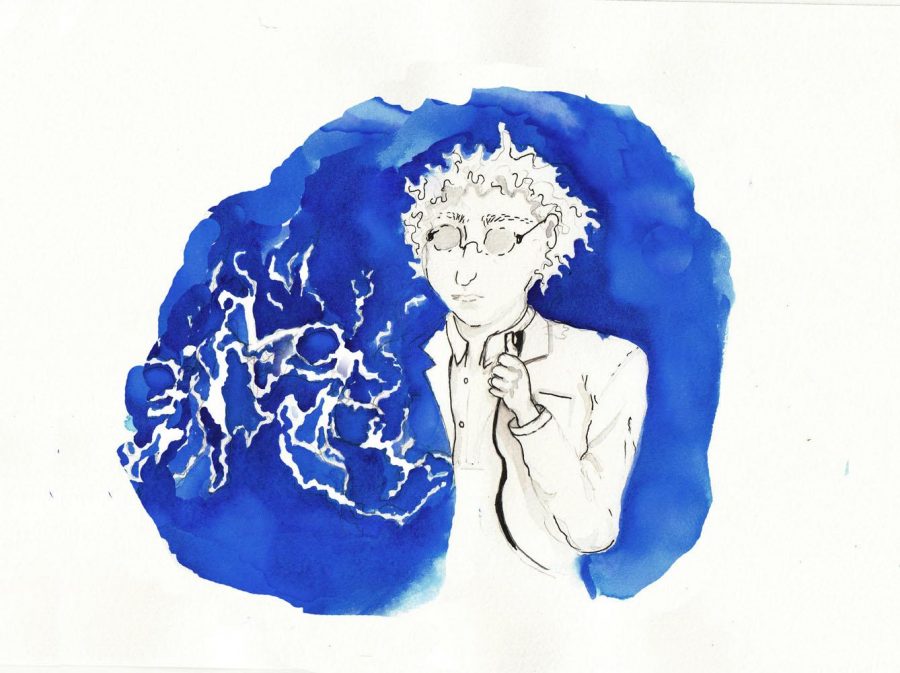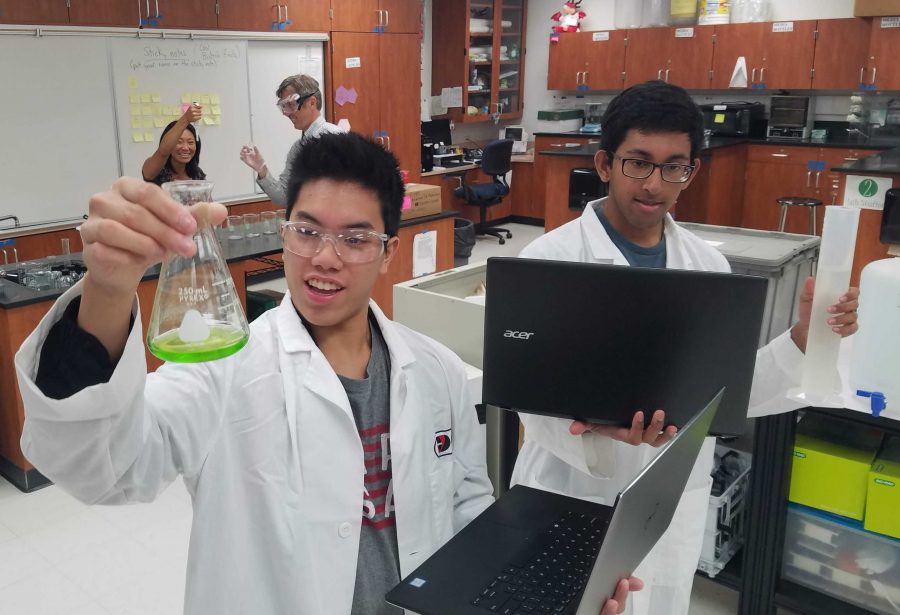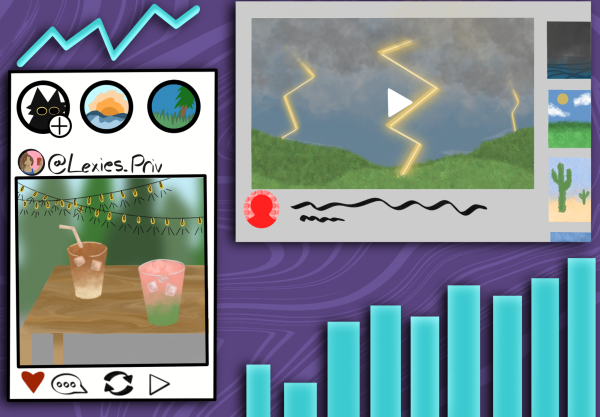Science: To read or not to read
Stefan Fahr
September 13, 2018
Wielding the power of the flame, quite literally, sparked ages of scientific innovation. All of the scientific innovation that has been happening throughout the ages (from the aforementioned discovery of fire to the electric heating systems and stoves of today) has irrevocably changed the world.
From the poppin’ song heard on the way to school to the phones ever within our reach to the wacky climate that our Earth is experiencing, science is at the forefront of our daily lives. When science is of so much importance, one should think it to be a prominent section in the Foothill Dragon Press (Dragon Press)ㅡbut is it actually?
Do people even bother reading about science? Is there an archetype you must fit in to read science articles? Are science articles even relevant to you?
The prominence of science in the Dragon Press can be summed up with the first few days of our journalism class; Even our very own publication forgot the science section, while the other “important” sections (i.e. the Opinions, A&E and Features) were highlighted.
With only 19 articles written for the section over a year period, it’s not surprising that the science section hasn’t generated a lot of buzz in class or around campus. When we asked students on Twitter, the consensus was about 50-50 towards “Have not heard of it.”
Did you know that The Foothill Dragon Press has a science section?
— The Dragon Press (@FTHSDragonPress) August 31, 2018
The 55 percent of people who answered that they have heard of the section before is decent 一if, of course, you are ignoring statistics, which is a field of science.
One of the more elementary concepts of statistical analysis is that online polls, in which participants volunteer, leads to bias and inaccurate results. It is essential to keep in mind that those who read the Dragon Press’s articles are more likely to also follow the Twitter page. As a result, they would be more likely to know about the science section and feel more compelled to answer the poll.
When walking around campus and quizzing students, there was a stark difference between the results of the Twitter poll and our own informal poll. Just about nobody who answered our informal poll knew that there was a science section, while more than half did in the Twitter poll.
This means that there is an underestimation of the Foothill population that does not follow the Dragon Press on Twitter 一another elementary concept of statistics that the Twitter poll did not account for. Therefore, the 45 percent of the respondents that had not heard of the science section is disappointing, but not unreasonable.
Now, why might that be? Well, to go to the extreme, the science tab is at the very end of the sections bar; therefore, many sections get the spotlight before we do (if you want proof, just look up and see for yourself). The more casual readers might simply not notice the change.
Avidh Bavkar ‘20 puts it best.
Kirill Gazzizov ‘20 echoed that sentiment: “They’d probably be considered nerds.”
It’s not hard to see why. Scientists are commonly portrayed as socially awkward geeks, deviating from the normal dress and looks and dedicating their time in the laboratory.
An example of this image is Doc Brown from “Back to the Future.” Doc is shown to be an obsessed scientist who has characteristics obviously resembling Albert Einstein and Isaac Newton.
In addition, his time is entirely focused on creating a time-traveling car, the DeLorean. While most scientists are not as obsessed as Brown, his stereotypical portrayal nonetheless highlights the public perception of scientists due to their depiction in films and novels.

Doc Brown, a stereotypical scientist from Back to the Future.
Not to mention, a great portion of science is intangible.
What really are electrons, protons and neutrons?
Or what is gravity?
All of these are impossible to see (at least for now) and comprehend, and as a result, they can make science seem boring, extremely hard or only meant for those who dedicate ludicrous amount of time into the subject.
But refuting that stereotype is exactly why this article was written. You don’t have to be a geek to like science or read science articles.
Max Murphy ‘22 concurs: “When I was little, I always used to think science people were like lab, trench coats [and] glasses.”
However, he now thinks that “some random person could be a science wiz.”
Bryant Nguyen ‘19 is “considering going into the science field” and believes that science stereotypes are exaggerated but still do contain a hint of truth.
Meanwhile, a new wave of sophomores have begun chemistry class, and are conducting labs that demonstrate the relationship between temperature and volume as well as using vinegar and baking soda as rocket fuel.
“[Chemistry] is going to be the most fun I’ve had in science ever,” Dylan Brown ‘21 said.
In addition, he expresses that “anyone can enjoy science,” even if the math is a setback.
Spoiler Alert: If you are a freshman or a sophomore, you might want to skip these next few sentences.
This excitement for science is tangible for any individual. Speaking of tangible, it may be interesting to some that it’s impossible to touch anything. For those of you that don’t know why: It is simply because of atomic (or molecular) repulsion.
On the outer edges of every atom is the electron cloud, which has a negative charge (albeit not a very strong one). When you go to touch something, the electron cloud from the atoms in your hand and the electron cloud from the atoms in the item that you are touching become extremely close to one another. However, because both electron clouds are negative, the electrons repel each other and never actually touch.
Now you may be willing to argue that since we can’t actually touch anything then the definition of touching is something altogether different, but that’s not the point. The point is that this may be a cool application of science.
Speaking of tangible, it may be interesting to some that it’s impossible to touch anything.
However, it’s not just cool science facts that make science relevant and interesting. Science is relevant because it paves the way for human innovation. It’s relevant because education is the key to success in this day and age. It’s relevant because public opinion, like those of politicians, should not be taken as pure evidence.
Instead, it is necessary to balance it with that of a professional scientist to truly understand the issue at hand. From climate change to vaccines, one side isn’t enough to understand the full picture. You must see both sides (including the science one) to understand the issue.
But if this article isn’t enough to convince you that you should read science articles, then perhaps the science teachers of Foothill and their endless wisdom will be able to convince you.
Thinglink credit: Jonathan Soriano, Thomas Weldele / The Foothill Dragon Press
And your teachers are absolutely right. Like it or not, science is going to change the world. One doesn’t have to look far back to see before the era of smartphones. So who knows what the world’s going to come up with next?
Whatever it is, science will be involved.
Thus, the Science section of the Dragon Press is committed to publishing articles that the Foothill community can enjoy, find relevant and stay informed on what’s happening in the science world.
So the next time you have some free time on your hands, don’t let your cursor only hover over the science section and move on. Instead, let your inner scientist revel and click on that heading. You never know what you might learn.
Editor’s Note: Staff member Matthew Godfrey contributed to the reporting of this story.













